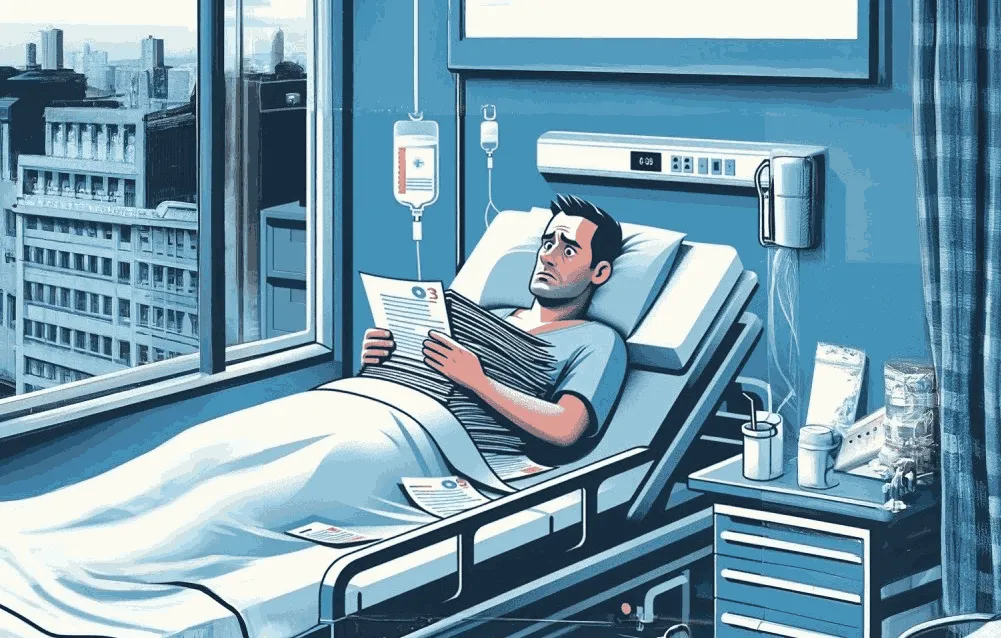Understanding Health Insurance
Health insurance helps pay for medical expenses if you get sick or injured. It covers things like hospital stays, doctor visits, medications, and other treatments. For example, if you need surgery, your insurance might cover some or all of the costs, depending on your policy. Health insurance usually covers common illnesses, accidents, and preventive care like vaccinations and check-ups.
Benefits of Health Insurance
Financial Protection: Covers high medical expenses.
Access to Medical Care: Ensures access to quality healthcare without worrying about costs.
Preventive and Curative Care: Includes both routine check-ups and treatment after a diagnosis.
Limitations of Health Insurance
No Specific Coverage for Critical Illnesses: Generally does not cover critical illnesses specifically.
Policy Limits: There are limits on claim amounts and types of treatments covered.
Exclusions: Some medical conditions might be excluded from coverage.
Understanding Critical Illness Insurance
Critical illness insurance gives you money if you're diagnosed with a serious illness listed in the policy, like cancer, heart attack, or stroke. For example, if you have this insurance and get cancer, you'll receive a lump sum payment. You can use this money for anything you need, like paying off debt or covering daily expenses.
Benefits of Critical Illness Insurance
Lump Sum Payment: Provides a one-time payment after a critical illness diagnosis.
Flexible Use of Funds: You can use the funds for whatever you need to support your recovery.
Additional Protection: Offers an extra layer of protection not provided by standard health insurance.
Limitations of Critical Illness Insurance
Limited List of Illnesses: Only covers specific critical illnesses listed in the policy.
Waiting Period: Usually, there is a waiting period before benefits can be claimed after purchasing the policy.
Not All Medical Costs Covered: Unlike health insurance, it does not cover all medical expenses but provides a lump sum payment instead.
Health Insurance vs. Critical Illness Insurance
To understand the differences between health insurance and critical illness insurance, let's examine some key aspects:
Purpose of Coverage
Health Insurance: Think of health insurance as a safety net for your everyday medical needs. It helps cover the costs of doctor visits, hospital stays, and treatments for common illnesses. It's like having a financial cushion when you get sick or injured.
Critical Illness Insurance: This is a special kind of insurance for serious health problems like heart attack, cancer, and stroke. It gives you a big lump sum of money if you get diagnosed with a serious illness. You can use this money to pay for medical bills, lost income, or other expenses related to your illness.
Payment Method
Health Insurance: Your health insurance pays the hospital or doctor directly for your medical bills. You may sometimes pay a small fee and the rest is covered.
Critical Illness Insurance: You get a big lump sum of money from your insurance company if you get diagnosed with any of the serious illnesses covered. You can use this money for anything you need, like medical bills or to cover living expenses while you recover.
Types of Illnesses Covered
Health Insurance: covers a wide range of common illnesses and injuries. Think of it as protection for everyday health problems.
Critical Illness Insurance: only covers specific serious illnesses, like cancer, stroke, or heart attack. It's focused on those big, unexpected health crises.
Flexibility in Fund Usage
Health Insurance: funds are used specifically for medical expenses. This means the money can only be used to pay for doctor visits, hospital stays, medications, and other healthcare-related costs.
Critical Illness Insurance: Funds can be used for any purpose. You have complete freedom to decide how to spend the money, whether it's for medical treatments, living expenses, or other financial needs.
Limitations and Exclusions
Health Insurance: Health insurance typically has limits on how much it will cover for specific treatments or services. Additionally, there may be certain medical conditions or treatments that are not covered at all.
Critical Illness Insurance: has a waiting period, meaning you must be insured for a specific period before a claim can be made. Furthermore, it only covers a defined list of severe illnesses, and any condition not on that list is excluded.
Why It's Important to Have Both Types of Insurance
In today's uncertain world, protecting your finances is essential. Health insurance and critical illness insurance are two important tools. Health insurance helps cover routine medical care, while critical illness insurance provides a financial safety net for severe diseases. While health insurance is valuable, serious illnesses can be very costly. Having both types of insurance offers stronger financial protection and peace of mind.
Why Choose Critical Illness Insurance from Oona
Oona Insurance offers exceptional critical illness coverage. We prioritize our customers' well-being by providing excellent support throughout the claims process. When faced with a serious illness, you can rely on Oona to provide the financial assistance you need, allowing you to focus on your recovery without undue financial stress.
Conclusion
Health insurance and critical illness insurance are two essential components of a comprehensive financial plan. While health insurance acts as a safety net for routine medical expenses such as doctor visits and hospitalizations, critical illness insurance provides a financial cushion specifically for severe health conditions.
By understanding the distinct roles of each type of insurance, you can make informed decisions to protect yourself and your family from the financial burdens associated with unexpected health challenges.
Essentially, health insurance covers the everyday, while critical illness insurance is there for the worst-case scenarios.
Don't wait until it's too late. Get critical illness insurance from Oona Insurance now. Visit us at myoona.ph for more information and to get a free quote.





















